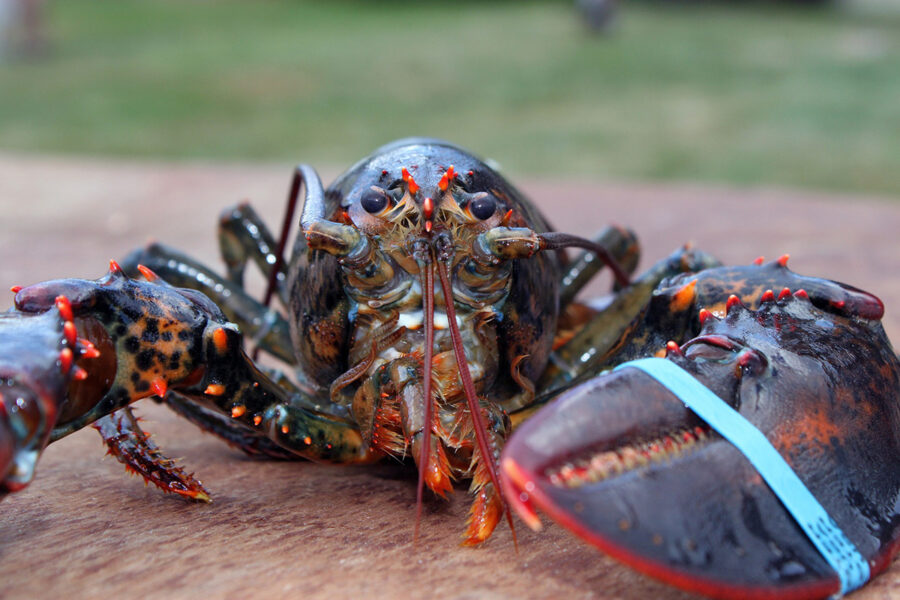A report by a group campaigning for ‘humane’ treatment of crustacean shellfish such as crabs, lobster and Nephrops says that 50% of companies involved with seafood lack formal policies, reports Tim Oliver.
In its report, ‘The Snapshot: Industry Benchmark on Decapod Crustacean Welfare’, which was released last week, Crustacean Compassion says that while decapod crustacean welfare is gaining traction within the industry, half of companies lack formal, universal policies.
Describing ‘The Snapshot’ as the ‘first industry benchmark’, Crustacean Compassion finds that decapod crustacean welfare is advancing up the business agenda – but says there is more work to be done on effective implementation of policies.
Following the inclusion of decapod crustaceans in the Animal Welfare (Sentience) Act 2022, Crustacean Compassion commissioned its report to assess decapod crustacean welfare standards within the UK food supply chain.
Thirty UK seafood producers, processors and retailers were evaluated in the benchmark, which assessed their current management and reporting practices.
Crustacean Compassion says that 50% of the companies assessed have developed formal policies on some aspect of decapod crustacean welfare, but that only 30% describe the measures in place to ensure these policies are effectively implemented.
Most decapod welfare policies prioritise aquaculture, with little focus on wild-caught species.
Crustacean Compassion says that in recognition of the work already happening within the industry to address decapod crustacean welfare and ‘the relative immaturity of the matter as a business issue’, companies involved in the inaugural report are not named. But when the benchmark exercise is repeated in 2023, company scores will be published.
One of the report’s key findings is that 21 of the 30 companies assessed (70%) consider decapod crustacean welfare to be a relevant business issue, citing economics, product quality and wider sustainability considerations amongst the driving factors.
“Although this is a positive finding, only 15 companies (50%) have developed formal policies – examples of which are highlighted in the full report,” says Crustacean Compassion.
It adds that only nine of these companies describe formal means to implement their policies, revealing what it describes as a disparity between commitments made and the management processes required to enforce them.
Only two companies (7%) were found to have universal decapod welfare policies that apply to all geographies, species and products. In contrast, most of the companies’ policies apply to farmed warm-water prawns only.
The report found that some companies are investing in innovative research and development projects that improve the welfare of both farmed and wild-caught decapods. Similarly, businesses are beginning to report on their performance on decapod crustacean welfare, with six of the eight companies who currently report performance data doing so publicly on their websites.
“The benchmark shows that although progress is being made in other areas of decapod welfare management and reporting, only one company appears to promote this to consumers, reflecting the infancy of the issue,” says Crustacean Compassion.
Zoom presentation
‘The Snapshot’ was launched via a Zoom presentation, which was attended by David Jarrad, chief executive of the Shellfish Association of Great Britain (SAGB).
He has been closely observing crustacean welfare developments for some years, and has been working with industry and Seafish to develop codes of best practice for handling crustaceans throughout the supply chain.
He told Fishing News: “The Zoom launch was more or less as I expected. They are obviously positioning themselves to be doing a benchmark like this every year of the entire sector – positioning themselves to be the crustacean welfare equivalent of the Marine Stewardship Council.
“They did mention the [industry] codes [of practice] a number of times, and said they wanted to work with industry on that – and they tried very hard to come across as understanding that this is a new area, and that there are some challenges ahead for industry.
“I wouldn’t say they came across as industry-sympathetic, but they were bordering on sympathy for the industry in that respect, and want very much to work with industry.”
He said that although the launch event was a webinar, it was not possible see who else was attending it, or to hear or see the questions posed in the Q&A session at the end.
“At the end they only answered questions they were reading out, which may have been ones that were posed or not – I don’t know.”
He said SAGB is holding a joint Processors and Crustacean Committee Zoom meeting on 28 February at which the sole topic will be crustacean welfare.
“We shall have a presentation by the consultants engaged to develop the industry codes of best practice. In addition, Crustacean Compassion will update us about their work on benchmarking the sector, followed by a general discussion on the topic.”
Claire Howard, director of development at Crustacean Compassion, said: “Following the legal recognition that animals like crabs, lobsters and prawns are sentient and can feel pain, it is encouraging to find that 50% of companies we assessed now have some form of welfare policy in place.
“However, considering the number of animals affected, with 420m decapods being landed in UK ports by UK vessels annually, there is an urgent need for comprehensive policies that are backed up by robust implementation processes.
“We hope that ‘The Snapshot’ will become a vital, collaborative asset to help companies to define key welfare expectations, ensure that management practices are in place to enable welfare improvements – across all species, both farmed and wild-caught – and provide a means of communicating these improvements to consumers.”
The full report is available at: crustaceancompassion.org
This story was taken from the latest issue of Fishing News. For more up-to-date and in-depth reports on the UK and Irish commercial fishing sector, subscribe to Fishing News here or buy the latest single issue for just £3.30 here.








